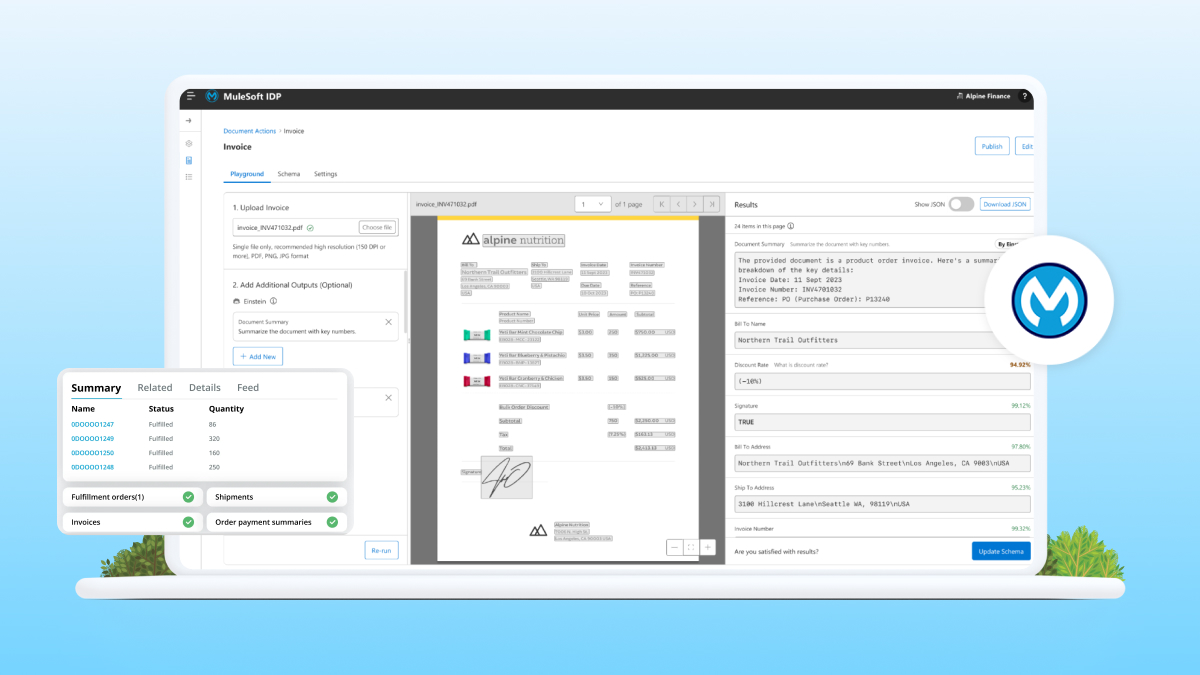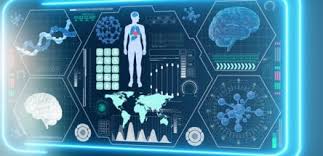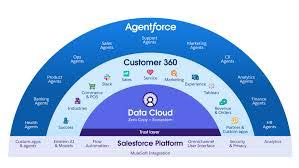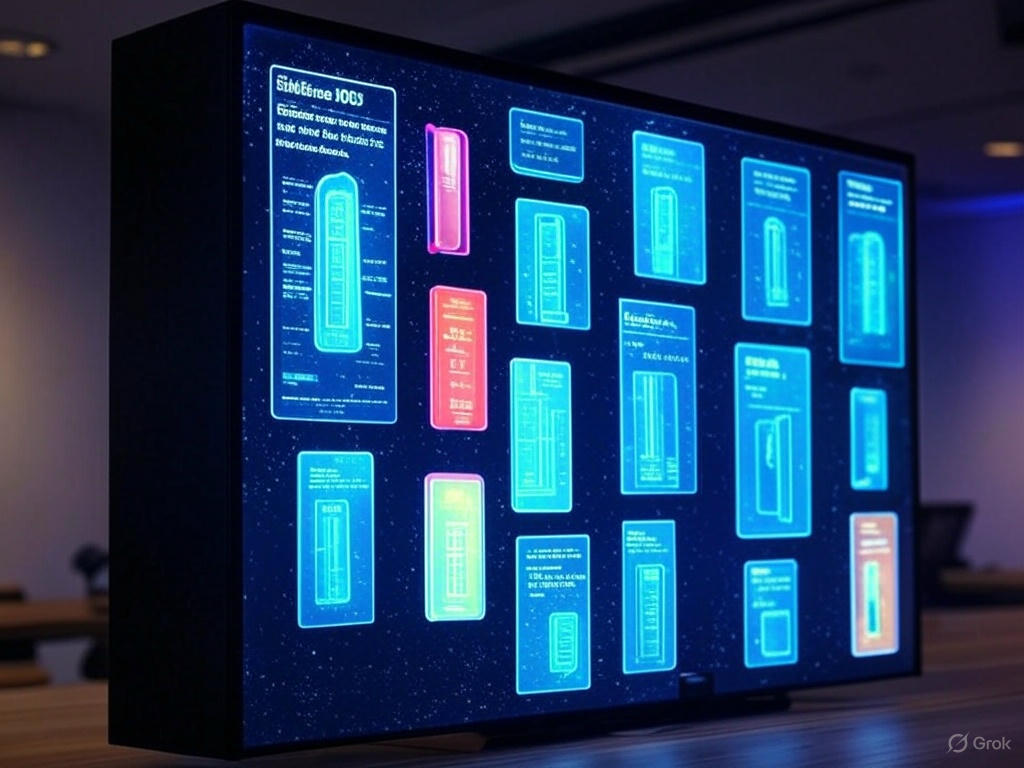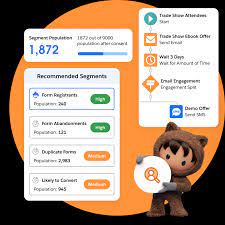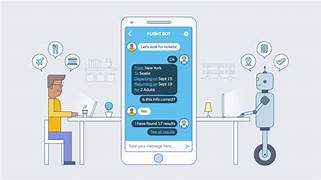
Salesforce Einstein GPT for Service
As many of you are already aware, ChatGPT has become a prominent term in AI chatbot systems. It leverages predictive computing to respond to user questions and queries, spanning from recipes for favorite dishes to new song lyrics or even code writing assistance. It’s quite thrilling, isn’t it? Einstein GPT and AI-Powered CRM bring forth the world’s first generative AI tool for customer relationship management.
Firstly, GPT stands for Generative Pre-Trained Transformer, an AI framework that generates text from datasets and offers human-like responses to user queries. Einstein GPT and AI-Powered CRM.
Einstein GPT marks the world’s inaugural implementation of generative AI CRM technology, delivering AI-generated content across sales, service, marketing, commerce, and IT interactions, at scale. Although currently in a closed pilot phase, it’s set to transition to the BETA phase soon.
Salesforce Einstein is an AI-powered platform that can be used in various ways to enhance customer experiences and streamline business operations Tectonic and Salesforce allow businesses to become AI-first, providing the ability to anticipate customer needs, improve service efficiency, and enable smarter, data-driven decision-making. Let’s explore how these technologies collaborate to enhance customer experiences and streamline business operations.
Salesforce Einstein Conversation Mining, a Service Cloud feature currently in beta, aggregates conversations across customer channels to surface insights on the topics customers need help with. This aims to turn inbound customer service from a cost center into a revenue center, a goal long pursued at conferences like Dreamforce and ICMI. This massive change drives more than revenue, it drives ROI. Performance metrics such as time-to-answer and hold-time reduction have traditionally pressured agents to minimize call duration to retain their jobs. Now Salesforce is going to help them.
Salesforce Service Cloud users are set to receive more Einstein 1 generative AI tools from Salesforce. A key development is the expansion of automated customer conversations across more sales and marketing platforms. Generative AI and Service Cloud family of tools is growing.
Sales teams can anticipate next opportunities and exceed customer needs,
Service teams can proactively resolve issues before they occur,
Marketing teams can create predictive journeys and personalize experiences like never before,
IT teams can embed intelligence everywhere and create smarter apps.
Salesforce Einstein GPT for Service
Salesforce Einstein GPT
For Service
Generative AI features:
° Knowledge Creation:
° Search Answers for Agents and Customers:
Einstein Copilot Service Actions:
Streamline service operations by drafting Knowledge articles and surfacing answers, grounded in knowledge, to the most commonly asked questions.
Summarize support interactions to save agent time and formalize institutional knowledge.
Surface generated answers to agents’ & customers’ questions that are grounded in your trusted Knowledge base directly into your search page. Search Answers for Agents is included in the Einstein for Service Add-on SKU and Search Answers for Customers is included in the Einstein 1 Service Edition.
Empower agents to deliver more personalized service and reach resolutions faster with an AI assistant built into the flow of work. You can leverage out-of-the-box actions like summarize conversations or answer questions with Knowledge or you can build custom actions to fit your unique business needs.
Power of Einstein GPT
Salesforce introduces Einstein GPT across Sales, Service, Marketing, and Development to automate tasks such as composing emails, scheduling meetings, generating knowledge articles from case notes, and crafting personalized content across multiple platforms. Developers benefit from enhanced productivity with AI-driven code generation and assistance using Salesforce Research’s language model.




Einstein GPT for Service is Here
Although AI has long been a part of Salesforce’s strategy, with the development of its Einstein AI platform dating back to 2016, the company is now taking a significant step forward with the Einstein GPT service. This service, initially integrated with OpenAI, aims to enable users to automatically generate content, respond to emails, create marketing messages, and produce knowledge base articles, all with the goal of enhancing customer experience. Some of us even refer to this as automagically!
According to Salesforce, OpenAI is just the first of several partners that will work with Einstein GPT, though specific details about future partnerships were not disclosed.



Einstein GPT for Service Salesforce Implementation
1. Monitor and Ensure Compliance
Maintaining compliance is crucial for fostering customer trust, preserving a positive brand image, and avoiding hefty privacy and compliance fines. In a contact center, compliance mistakes can quickly escalate into costly lawsuits and revenue losses.
Generative AI allows your compliance team to proactively manage compliance by quickly identifying trends and addressing issues in real time. Instead of waiting for a compliance issue to escalate, you can fine-tune your AI model to provide compliance insights whenever necessary. For instance, you can ask:
- “Did any agents forget to properly authenticate customers before proceeding with the call?”
- “Do customers mistakenly provide sensitive payment details to agents? How do agents react?”
- “What makes an agent more likely to forget to inform the customer that the call is being recorded? Provide three potential reasons.”
This approach offers more comprehensive insights than scorecards, which often lack context and accuracy. Generative AI’s analytical capabilities provide actionable insights to improve compliance across your contact center.
2. Get Insights About Your Call Center Performance at a Glance
Generative AI language models make it easier than ever to gain insights into your contact center’s performance. Simply ask the model for the information you need. For example, you can inquire about the real-time average handling time (AHT) by asking, “What is the average handling time today?”
But that’s just the beginning. With an advanced language model, you can compare metrics across different quarters or generate ideas for coaching plans by asking for each agent‘s strengths and weaknesses and suggestions for improvement.
3. Automate Post-Call Work
Generative AI assistants can act as real-time notetakers, summarizing 100% of calls and freeing agents from manual note-taking. This automation makes after-call work effortless, generating comprehensive and compliant notes with a single click.
4. Capture Coachable Moments Easily
Incorporating real-world coachable moments into your sessions is essential for tangible performance improvements. Generative AI can identify areas where agents typically struggle without requiring hours of call listening and note-checking.
Traditional methods mean compromising on the specificity of coaching due to time constraints, especially when managing large teams. Generative AI solutions, however, enable call center managers to obtain detailed insights about each agent’s performance quickly. This allows for personalized coaching plans that address individual shortcomings efficiently. You can ask:
- “How many times did agent fail to understand the customer’s query?”
- “Provide a piece of advice for agent to improve her support in technical customer queries.”
- “Why is agent’s sale closure rate declining? Provide three possible reasons.”
5. Improve Decision Making With Efficient Root-Cause Analysis
Effective decision-making can transform your contact center. However, many managers struggle to identify the root causes of performance issues. Generative AI algorithms can analyze vast amounts of data and customer interactions, uncovering patterns and trends in customer and agent behavior.
These insights help pinpoint the issues most impacting performance and customer satisfaction, allowing you to make informed decisions. The process is nearly fully automated, freeing your team from time-consuming data collection tasks.
6. Reduce Manual Work and Focus on Improvement
Improving contact center performance requires extensive data, which is resource-intensive to collect manually. Generative AI simplifies this by analyzing customer interactions and providing actionable insights on demand. This saves time and money, allowing you to focus on improvements that deliver a higher ROI.
7. Scale What Works
Discovering and scaling best practices is essential for team-wide success. Generative AI and Natural Language Processing (NLP) models can analyze customer interactions to identify effective strategies and coaching opportunities. For example, if a representative handles challenging situations well, AI can generate tips for other team members based on these successful interactions.
Generative AI can identify top-performing agents and analyze their calls to extract best practices, providing a more comprehensive approach than focusing on a single agent. Queries you might use include:
- “List ten instances where agents effectively closed challenging sales. Include relevant transcripts and call audio.”
- “Explain why there were no deals closed today. Provide five reasons with concrete examples.”
- “Identify the most successful tactic for overcoming budget objections in the last 90 days. Share transcripts showcasing this tactic.”
8. Generate Agent Scripts
Generative AI enables you to draft and fine-tune agent scripts for various customer interactions. Instead of relying on generic scripts, AI creates personalized scripts considering past interactions and customer preferences, ensuring consistent communication and adherence to company guidelines.
9. Automate Custom Email Responses
Generative AI enhances automated email responses by understanding customer queries and attempting to resolve them based on your knowledge base. This improves efficiency, allowing agents to focus on complex queries while AI handles repetitive ones, resulting in faster and more consistent customer experiences. Not long ago, the concept of automating customization was almost unimaginable.
10. Create Voices for Customer Service and Client Calls
Generative AI tools can develop artificial voices that resemble human speech patterns, handling simple and repetitive queries without direct agent involvement. This helps manage more calls and route complex queries to human agents, improving customer satisfaction.
11. Enable 24/7 Customer Support
Generative AI solutions enable continuous, reliable customer support outside business hours. You can implement self-service channels like AI chatbots, dynamic customer awareness sessions, and automated email responses to ensure 24/7 support.
12. Create Comprehensive, Continuously Updateded Knowledge Bases
Generative AI can create and maintain extensive knowledge bases, generating FAQs, troubleshooting guides, and instructional content based on real-time customer interactions. This ensures your knowledge base remains current and relevant, benefiting both customers and agents.
While generative AI offers numerous benefits for contact centers, there are several challenges and limitations to be mindful of:
Complex Inquiries May Lead to Inaccurate Responses
Although AI language models have advanced significantly and continue to improve, their ability to handle complex inquiries can still be limited. Queries involving multiple orders or intricate questions might lead to inaccurate responses. The accuracy of generative AI improves with more data, but it’s crucial to recognize its current limitations.
Large Language Models May Display Bias
Bias remains a notable challenge in AI language models. Generative AI can produce responses that are biased, harmful, or polarizing. While you can exert some control over the content the model generates, effectively mitigating biases remains a significant concern, particularly given past incidents of problematic outputs.
Customization and Fine-Tuning Requirements
Generative AI models often produce generic and potentially inaccurate responses if not properly customized and fine-tuned. Using a general-purpose model without tailoring it to your contact center’s specific needs and grounding it in your data can lead to suboptimal results and expose sensitive company information, risking legal issues.
Continuous training of the AI model with your contact center’s data, both initially and over time, is essential for achieving better performance. Effective assessment of a generative AI model should focus on three main factors: quality, speed, and diversity. Poor speech quality can hinder communication, and slow response times can waste valuable time. Additionally, a well-designed AI model should capture diverse data patterns while minimizing bias and maintaining high-quality responses.
Data Privacy and Security Concerns
Implementing generative AI raises important data privacy and security issues. It is essential to establish strong measures to protect sensitive information and ensure compliance with relevant regulations.
We recommend working with a Salesforce partner like Tectonic to avoid these pitfalls.
Einstein GPT for Service Salesforce
Ready for a Einstein GPT for Service Salesforce Implementation?
Explore the possibilities of Salesforce Einstein GPT for Service based on your company’s goals. Now Generally Available, there is no time like the present to add Einstein GPT to your toolbox. Tectonic is ready to partner with you, offering support at every stage of your Salesforce journey. Reach out online to request more information or schedule a call – we look forward to discussing your needs!




